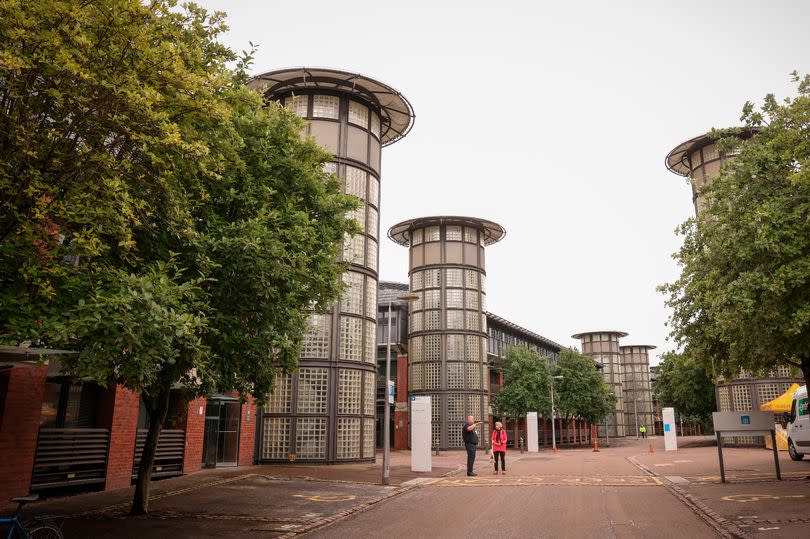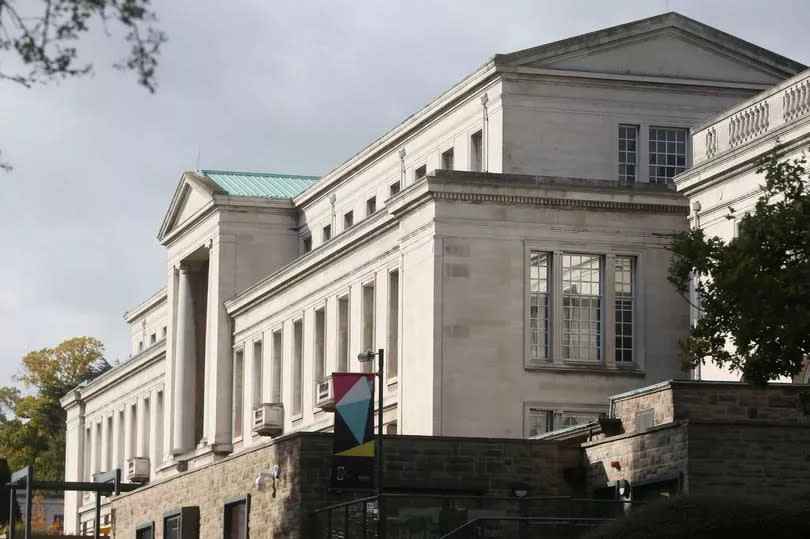University of Nottingham facing 500 job cuts as union says there is no cash for library books or coffee

The bleak financial situation at a Nottingham university means around 500 job cuts are on the cards, a union says, as library book orders are put on hold and coffee is taken out of staff rooms. The University of Nottingham has enacted a wide-ranging set of cutbacks after its leaders became aware it was hurtling towards a financial year-end budget gap - measures which unions say will only create more problems.
In recent days the city's prestigious university has started a Mutually Agreed Resignation Scheme, in which employees voluntarily leave with a severance payment. However, according to academics union UCU, this has followed a hiring freeze, cuts of all non-pay budget items and plans not to renew the contracts of almost 500 staff on fixed-term contracts that expire in July.
"We are, thus, especially concerned about the way the finances are managed at the University of Nottingham," a statement agreed upon by the university's UCU committee said, continuing: "The way that fancy infrastructure projects are almost exclusively financed via annual surpluses inevitably implies constant downward pressure on pay budgets.
Get the latest news straight to your phone by joining us on WhatsApp
"In particular, we are concerned about the millions and millions of pounds being spent on the vanity project of the new Castle Meadow campus. Ultimately, it is staff who will pay for these management excesses."
The university bought the Castle Meadow site, which was formerly occupied by HMRC, for more than £36 million in 2021. The 32,500 square metre space will be used to educate thousands of post-graduate students and house global and local businesses.
Last year the head of the project said £45 million had been invested into the new campus as of July, but explained this had not all been invested by the university itself. It is expected to open in 2025, with teaching ramping up on the site in 2026.
The UCU committee added: "In general, we are concerned about the way of how the university governance structures are organised and how little opportunity staff have for meaningful participation in those structures. Instead of drawing on the existing expertise within our institution, only a very small circle of senior managers decides on Future Nottingham."

In January the University of Nottingham's Executive Board announced the institution was facing "challenges around our estate" and needed to address immediate maintenance issues, as well as dealing with the recent inflation and decline in real-term value of tuition fees which the board said had resulted in "unprecedented financial pressures" for UK universities. Spending would have to be cut to prevent a deficit, board members concluded, referring to these cost-cutting measures as 'Future Nottingham'.
While UCU acknowledged the widely recognised pressures impacting universities, its committee claimed other Russell Group members had not had to enact hiring freezes or large-scale cuts. The union's committee also said it was worried about increasing workloads and pledged any compulsory redundancies would be met with an immediate ballot on industrial action.
Unison, which represents administration, facilities and estates workers at the university, said it would also oppose involuntary redundancies. "A lot of universities are cutting staff so we were expecting at some point this would happen, but we were hoping it would be next financial year - but they've decided to cut staff this year," Vicki Morris, branch secretary, said.
"We have been carrying a lot of vacancies in teams already, so this will only make things worse. We've been feeling quite a heavy workload in some areas for a long time, and there's an expectation that could increase.
Staff do not know the headcount reduction the university is looking for or its estimated savings value. "If the university does not get the savings it wants, we are moving into the much more unpleasant territory of 'you've got to go'," the union representative added.
Ms Morris added mistakes had potentially been made by university leaders, but also called for the next government to be more supportive of the higher education sector. A University of Nottingham spokesperson said: "This is an extremely challenging time for the whole of the higher education sector, balancing the costs of investment into pay and pensions with managing the impact of soaring cost of living increases on our services and a decline in the real-terms value of tuition fees.
"Continually reviewing our spending and ensuring we are achieving the best value represents good financial management and in the face of these current challenges will help to safeguard the financial future of the university for our staff and students.
"The Mutually Agreed Resignation Scheme is part of the university’s response to addressing these financial challenges and will support the university in its ongoing work as it adapts to the challenging national and global environment in which HE operates. Similar schemes have been opened at other universities across the country.
"The decision to apply for MARS is entirely voluntary and the university has safeguards in place to ensure business continuity and the retention of specialist skills and knowledge.
"There is no restriction on any core or recommended texts for teaching and learning. We are incredibly proud of our library facilities and committed to ensuring that our students have access to the textbooks they need to successfully support their studies.
"We have temporarily paused our book suggestion scheme. This is for wider reading only and we have seen a decline in demand for this service over recent years. This change does not affect our core and recommended texts for teaching and learning which are on our students’ reading lists and access to materials for wider reading is still available via other routes such as the interlibrary loan or the SCONUL Access Scheme."

 Yahoo News
Yahoo News 
